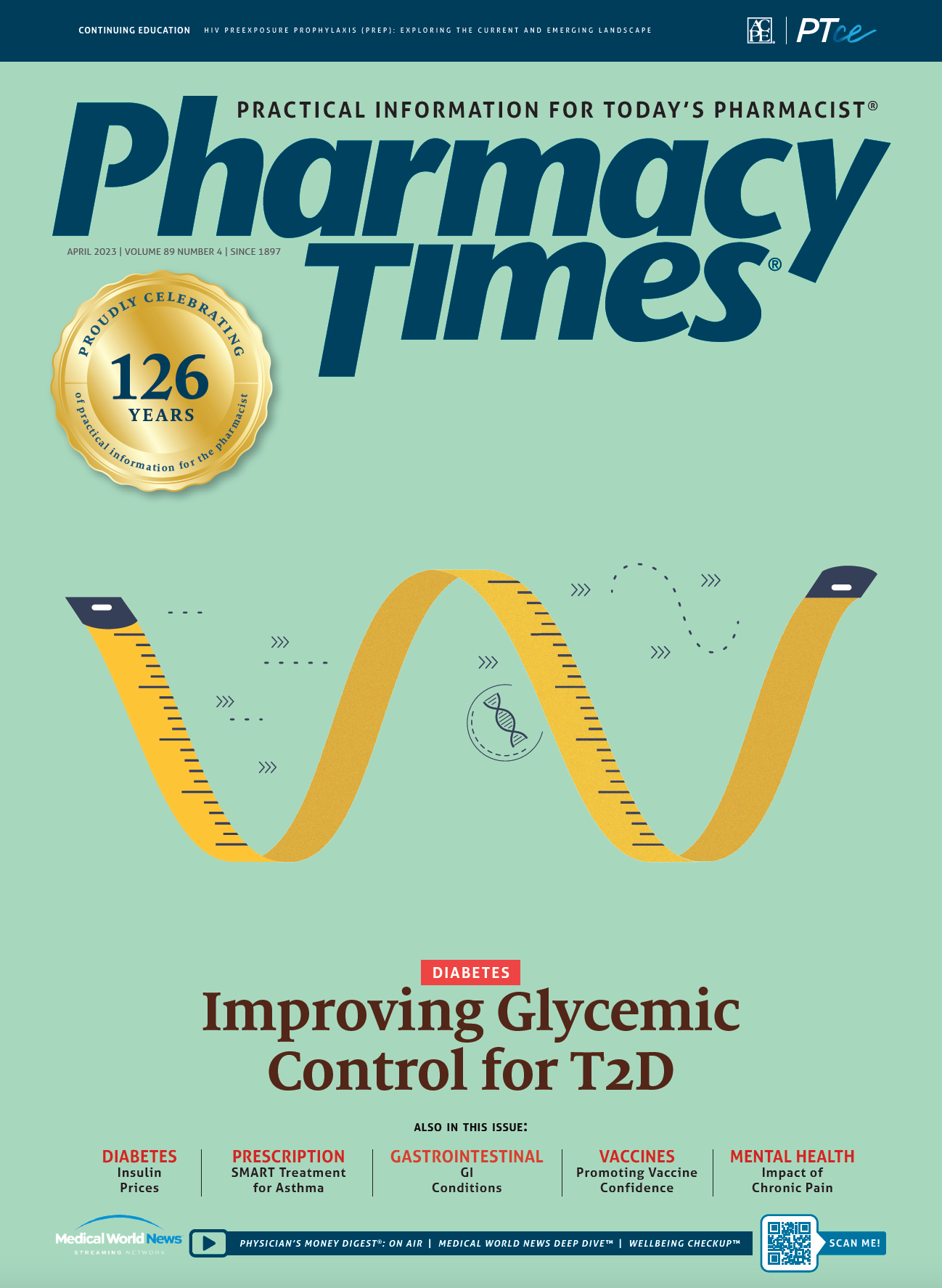Publication
Article
Pharmacy Times
Tzield From Provention Bio, Inc
Author(s):
Tzield does not have any known contraindications.
The FDA has approved teplizumab-mzwv intravenous (IV) injection (Tzield) from Provention Bio, Inc, to delay the onset of stage 3 type 1 diabetes (T1D) in individuals 8 years and older with stage 2 T1D.1
Diabetes concept: © Minerva studio - stock.adobe.com

More than 1.8 million Americans have T1D, an autoimmune disease caused by the destruction of β-cells. Stage 3 T1D utilizes glucose monitoring and insulin therapy and is associated with significant health risks, including diabetic ketoacidosis.2
Pharmacology and Pharmacokinetics
Tzield is a CD3-directed antibody. CD3 is a cell surface antigen present on T lymphocytes. By binding to CD3, Tzield may involve partial agonistic signaling and deactivation of pancreatic β-cell autoreactive T lymphocytes, resulting in an increased proportion of regulatory T cells and exhausted CD8+ T cells in the peripheral blood. Tzield displays a mean terminal elimination half-life of 4.5 days.1
Dosage and administration
Before patients start treatment with Tzield, stage 2 T1D must be confirmed and complete blood count and liver enzyme tests must be obtained and show no abnormalities. Tzield is given as an IV infusion over a minimum of 30 min/d for 14 consecutive days. The recommended dose is 65 μg/m2 on day 1, 125 μg/m2 on day 2, 250 μg/m2 on day 3, 500 μg/m2 on day 4, and 1030 μg/m2 on days 5 through 14. For at least the first 5 days of the treatment course, patients should be premedicated with acetaminophen or a nonsteroidal anti-inflammatory drug, an antihistamine, and/or an antiemetic. Tzield is supplied as a 2-mg/2-mL single-dose vial and requires dilution with 0.9% sodium chloride injection, United States Pharmacopoeial Convention, before administration.1
Clinical Trials
Tzield was evaluated in a double-blind, event-driven, placebo-controlled, randomized study (NCT01030861) of 76 patients aged 8 to 49 years with stage 2 T1D. Participants were randomly assigned to receive either Tzield or a placebo once daily by IV infusion for 14 days. The primary efficacy end point was the time from randomization to development of stage 3 T1D. The phase 2 study found that stage 3 T1D was diagnosed in 45% of the participants using Tzield and in 72% of the participants using the placebo. The onset of stage 3 T1D was delayed in the Tzield group, with a median of 50 months from randomization to stage 3 T1D compared with 25 months in the placebo group.1,2
Contraindications, Warnings, and Precautions
There are no contraindications to treatment with Tzield.Because cytokine release syndrome (CRS) has been observed during treatment with Tzield, patients should be medicated before administration and liver enzymes should be monitored throughout treatment. If CRS occurs, symptoms should be managed with antihistamines, antipyretics, and/or antiemetics. Severe CRS may require discontinuation or interruption of treatment. Tzield should be discontinued if alanine aminotransferase or aspartate aminotransferase are more than 5 times the upper limit of normal or if bilirubin is more than 3 times the upper limit of normal. Tzield should not be used in patients with an active serious infection or a chronic infection. White blood cell counts should be monitored during treatment with Tzield, and the medication should be discontinued if prolonged severe lymphopenia (< 500 cells per μL lasting 1 week or longer) occurs. Tzield should be discontinued immediately if severe hypersensitivity reactions occur. All age-appropriate vaccinations should be given before beginning treatment with Tzield. Inactivated or messenger RNA vaccinations are not recommended within 2 weeks before Tzield treatment, during treatment, and 6 weeks after completion of treatment. Live-attenuated vaccinations are not recommended within 8 weeks before Tzield treatment, during treatment, or up to 52 weeks after treatment. Tzield should not be used during breastfeeding or pregnancy. The most common adverse reactions are headache, leukopenia, lymphopenia, and rash.
References
1. Tzield. Prescribing information. Provention Bio, Inc; 2022. Accessed January 3, 2023. https://www.accessdata.fda.gov/drugsatfda_docs/label/2022/761183s000lbl.pdf
2. Tzield (teplizumab-mzwv) approved by FDA as the first and only treatment indicated to delay the onset of stage 3 type 1 diabetes (T1D) in adult and pediatric patients aged 8 years and older with stage 2 T1D. News release. Provention Bio, Inc. November 17, 2022. Accessed January 3, 2023. https://investors.proventionbio.com/2022-11-17-TZIELD-TM-teplizumab-mzwv-approved-by-FDA-as-the-first-and-only-treatment-indicated-to-delay-the-onset-of-Stage-3-type-1-diabetes-T1D-in-adult-and-pediatric-patients-aged-8-years-and-older-with-Stage-2-T1D
About the Author
Monica Holmberg, PharmD, BCPS, is a pharmacist in Phoenix, Arizona, and a Pharmacy Times contributor.

Newsletter
Stay informed on drug updates, treatment guidelines, and pharmacy practice trends—subscribe to Pharmacy Times for weekly clinical insights.





